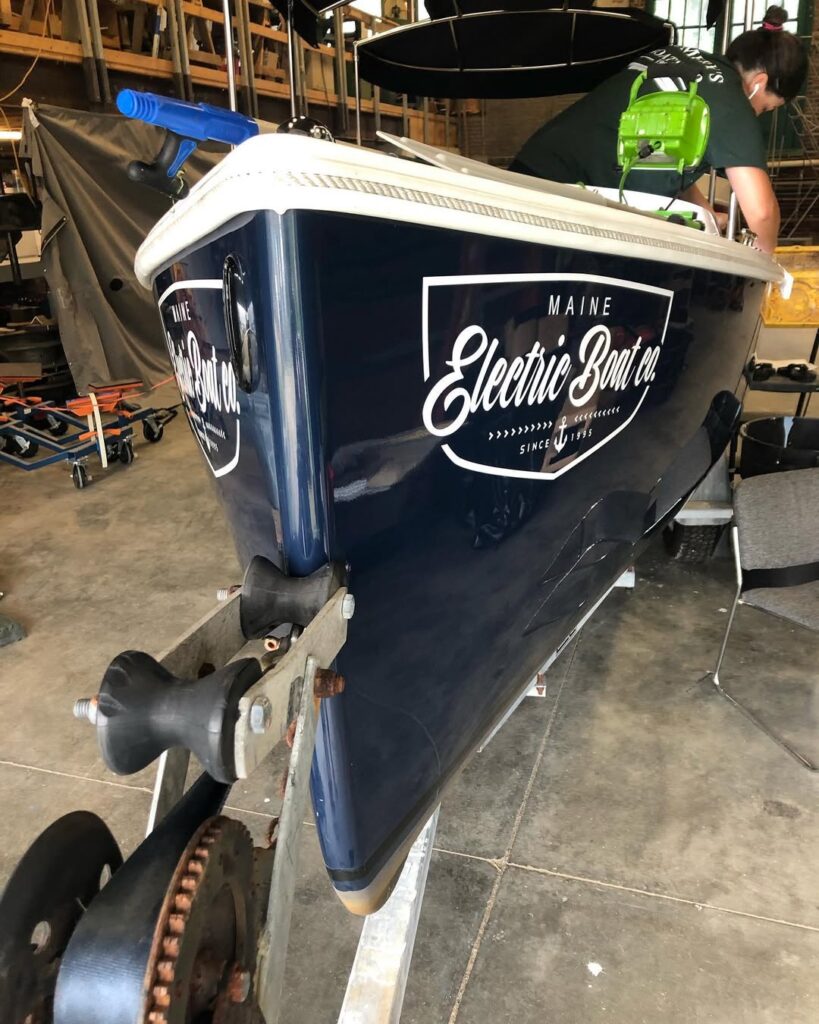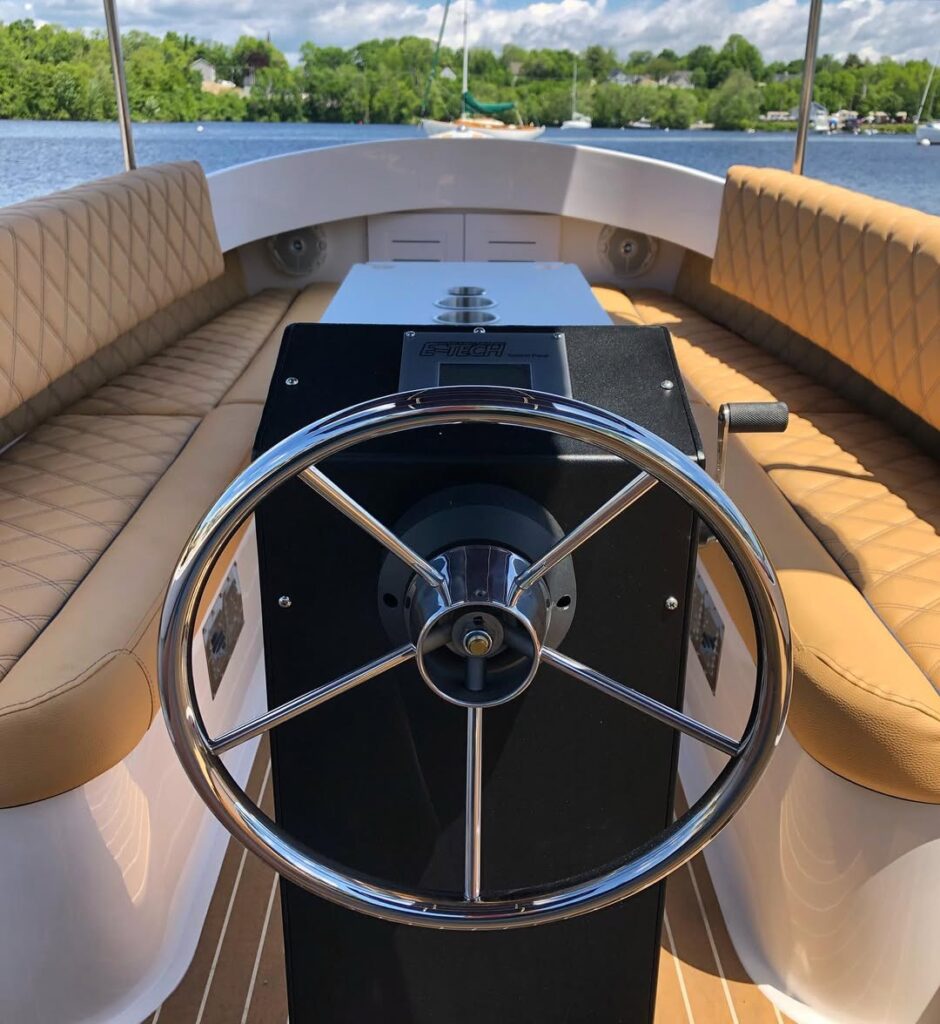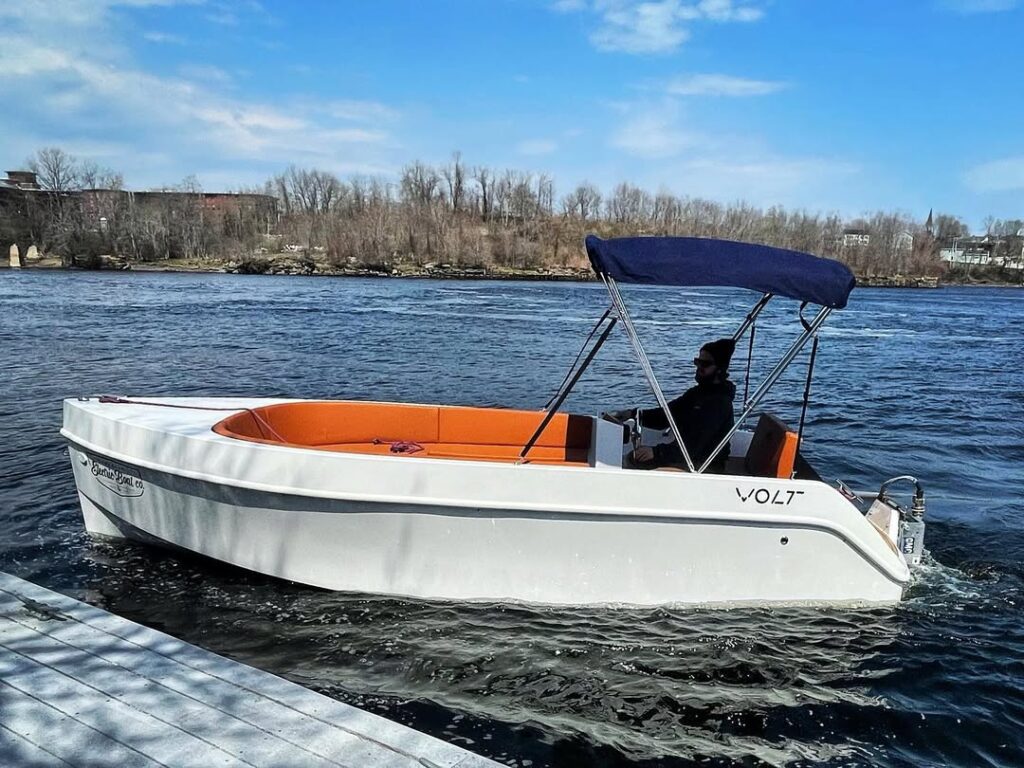April 01, 2025
Matt Tarpey: Maine Electric Boat
In the rugged coastal waters of Maine, where working waterfronts have deep historical roots, Maine Electric Boat is charting a new course. As the first of its kind, Maine Electric Boat is tackling an environmental challenge that’s long been overlooked: the staggering impact of marine engine emissions on our waterways.



Photos from Maine Electric Boat’s Instagram. Q&A as told by MEB owner Matt Tarpey
Describe your business in one sentence.
Electric Boat started in 2018/2019 when we noticed a regional gap in the commercial boating sector, and it organically evolved to include recreational boating—creating an interesting angle for us in the working waterfront.
What unique perspective/skills do you bring to your business?
We were first! Over a several-year period, we dealt with lots of broken electric motors at our facility. We learned not just what works but what doesn’t work. We partnered with Flux Marine in Rhode Island and secured exclusivity with them in Maine.
What has been the greatest challenge you’ve faced in starting or running your business? How did you overcome that challenge?
Capital has been our biggest challenge. We received a grant from MTI, but for four years we were told, “This is something that Maine is excited about, but you’re too young and trying to do something new.” Interest rates were high.
What has been your greatest business triumph so far?
Understanding the problem we’re trying to solve. I had a hunch that the water-based environmental degradation from fuel emissions was worse than commonly understood, but I didn’t grasp the true magnitude. Regarding fuel—it’s worse for boats than cars by a factor of 78:1, gallon for gallon. I felt nauseous when I realized this, then proud that we’re tackling a big, hard problem that’s niche and overlooked. The working waterfront has potential to grow rather than shrink.
Where do you see your business in 3-5 years?
We’ll have more charging infrastructure and innovative hull design work—more hydrodynamic. It’s weird no one’s been doing this for a while; there’s a lot of opportunity there. We want to bring back hull manufacturing to Maine. Every oyster farmer uses a Carolina Skiff—we could bring back a legacy industry while abandoning legacy fuels.
We’ll focus on engineering, infrastructure, and remote diagnostics and repairs. Education is also important. People often misunderstand range—how much time you get at top speed versus trolling (where you can get 24 hours). People overestimate how often they’re at top speed. We want to help them understand how they use their boat day-to-day without having to change their habits.
We’re also looking at e-fuels, methanol as a range extender, and battery improvements.
What advice would you give to aspiring business owners?
Know what you’re getting into! Be careful of how fast or slow you move. Understand when VC is right and when it’s really wrong for your business. And, ask a lot of people for advice.
Nonprofits move very slowly. Talk to CEI before going too deep; there’s a lot of red tape. It’s really hard to get debt-free/equity-free capital.
How did CEI become a part of your journey?
If I had to guess, it was around 3 AM, pouring through lots of financial options in Maine. Massachusetts had more. Maine’s a small community, and someone nudged me to give CEI a call. Nick and Hugh [of CEI’s Fisheries and Aquaculture team] came down—they were quick and eager to give us the time of day to understand barriers we needed to address prior to doing other things.
It’s great that CEI really enabled our vision. Working with CEI de-risks it for state entities that might be going after grants. It’s not a coincidence we were 0 for 50 before CEI, and 1 for 1 after.



